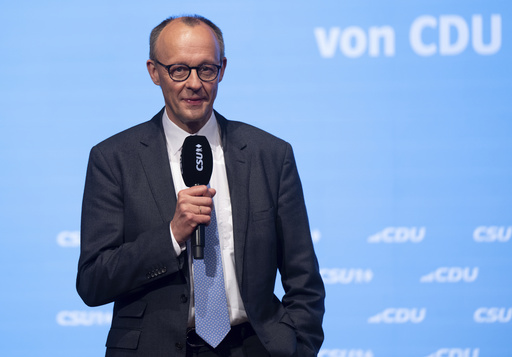**Berlin, Germany** — As the election in Germany approaches, candidates made their final appeals to the electorate on Saturday. Friedrich Merz, the leading opponent and front-runner, promised to stimulate the stagnant economy and protect European interests amidst rising tensions with the U.S. administration. Meanwhile, Chancellor Olaf Scholz expressed hope for an unexpected turnaround in his favor before the voting begins on Sunday.
The upcoming election will decide the composition of a new parliament after a campaign that emphasized the challenges facing Europe’s largest economy, particularly migration issues. Concerns about the conflict in Ukraine and the future of transatlantic relations have also loomed large in the public discourse. However, polls indicate little movement in party popularity, with Merz’s center-right Union bloc consistently leading. This bloc is followed by the far-right Alternative for Germany (AfD), which is poised for significant representation—the highest for a far-right party since World War II—despite having no allies willing to form a government with them.
Chancellor Scholz’s center-left Social Democrats have struggled to recover from a substantial polling deficit after their coalition with two other parties unraveled last November due to a prolonged dispute over economic revitalization. This led to the decision to hold elections seven months earlier than originally planned.
During his final rally held at a beer hall in Munich, Merz declared to supporters that “three years in opposition are enough.” He reaffirmed Germany’s traditional leadership role within the 27-member EU, which has been shaken by domestic issues in recent months, similar to challenges faced by France. Merz stated, “With me, Germany will have a strong voice in the European Union again,” asserting that Europe must be regarded as a key player in global affairs, not a mere participant relegated to a side table.
Merz emphasized that Germany must defend its interests on various fronts, including Russia and China, and also hinted at the need for a more robust presence in relation to the United States. He remarked, “Anyone who shows up there as a dwarf is treated as a dwarf and sent home as a dwarf.” He warned that restoring respect within the EU would require overcoming the country’s economic weaknesses, which he characterized as predominantly domestic in nature.
Additionally, Merz has intensified his stance on migration, a topic that has caused friction leading up to the election. Recently, he introduced a nonbinding motion aimed at increasing the number of migrants turned back at Germany’s borders. This motion was supported by the AfD, marking a significant departure from postwar political norms, which has led to criticism aimed at Merz for allegedly crossing a line. He, however, dismissed these allegations, reiterating, “We will under no circumstances discuss any talks, never mind negotiations or a participation in government, with AfD.”
Scholz, addressing supporters in Potsdam, countered by questioning Merz’s credibility and positioning the Social Democrats as a formidable barrier against any involvement of the AfD in governance. He emphasized, “Anyone who wants to be sure this doesn’t happen must ensure that there are strong Social Democrats and that they can provide the next chancellor.” Scholz expressed his belief that many voters would deliberate until just before the vote, saying, “I don’t believe in miracles, but in an election victory.”
Should Merz emerge victorious, it remains uncertain whether he would need to form a coalition with a third party or if he could manage with just a two-party alliance, complicating his prospects for governance. As conservative ally Markus Söder noted in Munich, “If we govern, we need few partners and not an endless number of them.”
